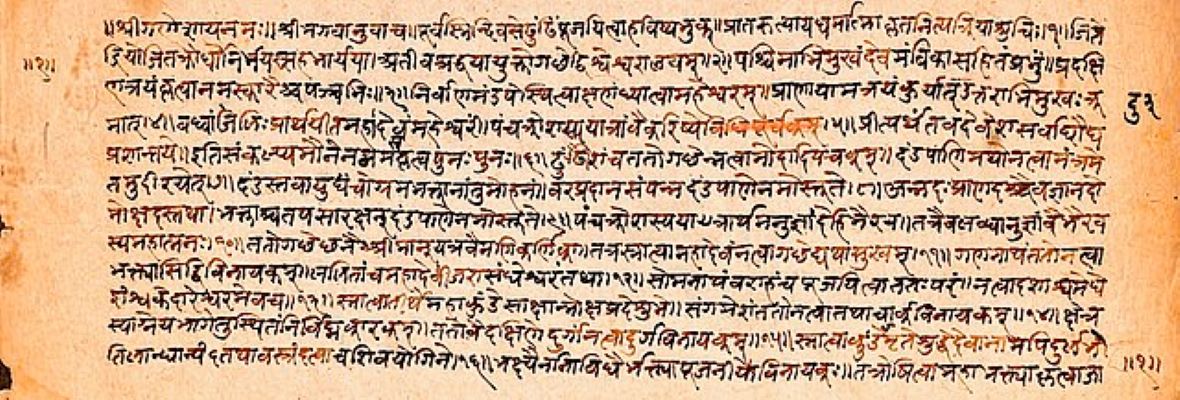In this new study in the International Review of the Red Cross, Raj Balkaran and Walter Dorn supplement their 2022 paper ‘Charting Hinduism’s Rules of Armed Conflict: Indian Sacred Texts and International Humanitarian Law’ – which focused on the epics, especially the Mahābhārata, as the locus classicus of rules of armed conflict in the Indic world – by taking a closer look at the extensive body of texts produced in the centuries following the epics’ completion, i.e., the Purāṇas. As such, this work summarizes and advances the close survey of traditional Hindu texts – the Vedas, Upanishads, epics and Purāṇas – with an eye to the explicit rules of engagement and general attitudes towards violence implicated therein.
Please read the article here
Abstract
What rules of fighting (armed combat) does Hinduism espouse? The sacred texts are the pre-eminent sources, so these need to be summarized and compared to each other. Teaching mostly through stories, the texts describe deeds of people (especially warriors), gods and demons to show how to behave and not to behave in war. While the injunctions in the Mahābhārata and Arthaśāstra are already covered in the literature, including in this journal, this present work examines the Purāṇas in depth. After a thorough search of all relevant passages, we find the Purāṇas to be very similar to the epics in terms of the list of prescribed and proscribed actions in war that they provide. We also make comparisons to international humanitarian law (IHL); as in the epics, we find that the Purāṇas contain many similar provisions to those found in IHL but that they go above and beyond what is required by IHL in urging that fighting be fair at the tactical level (i.e., between individual fighters). Being religious texts, the Purāṇas also deal with the afterlife consequences of both righteous and unrighteous combat.
Authors
Raj Balkaran is a tutor with the Oxford Centre for Hindu Studies, where he also serves on the Continuing Education Department’s Course Development Board. He is a scholar of Sanskrit narrative texts and the author of The Goddess and the King in Indian Myth (Routledge 2018), The Goddess and the Sun in Indian Myth (Routledge 2020). He taught comparative religion and mythology at the University of Toronto School of Continuing Studies for a decade. Dr Balkaran runs a thriving life consulting practice and hosts the New Books in Indian Religions podcast.
Walter Dorn is Professor of Defence Studies at the Royal Military College of Canada (RMC) and the Canadian Forces College (CFC). He teaches officers of rank major to brigadier-general (and equivalents) from Canada and about 20 other countries. As an “operational professor” he participates in field missions and assists international organizations. For instance, he served on the UN’s Expert Panel on Technology and Innovation in UN Peacekeeping and has done consulting work for the International Committee of the Red Cross (ICRC).

